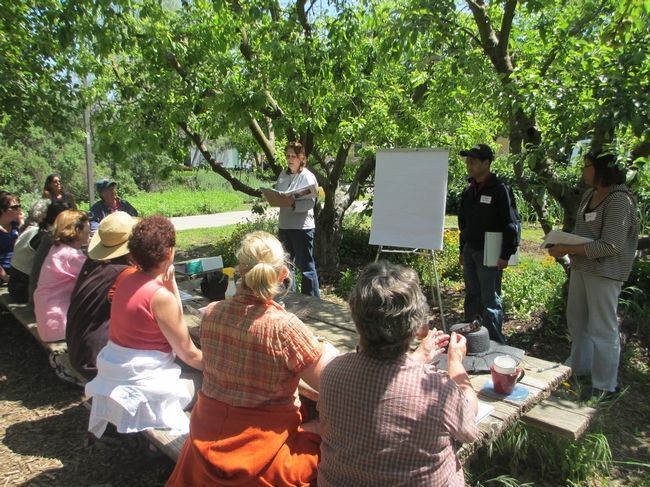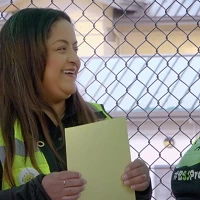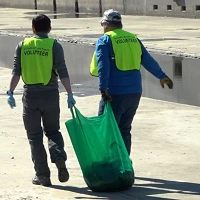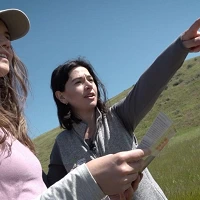by Aubrey White
 Lately, I’ve seen the familiar signs of back-to-school. The school bus noisily pulls away from my neighbor’s house before the sun has fully risen. The neighborhood kids are inside a bit earlier in the evening (probably to finish that pesky homework), and I see throngs of students walk down the street with heavy backpacks slung low over their shoulders. But there are a few new signs in my neighborhood that school is back in session; kids with dirty jeans, mud stained at the knees from time spent in the school garden.
Lately, I’ve seen the familiar signs of back-to-school. The school bus noisily pulls away from my neighbor’s house before the sun has fully risen. The neighborhood kids are inside a bit earlier in the evening (probably to finish that pesky homework), and I see throngs of students walk down the street with heavy backpacks slung low over their shoulders. But there are a few new signs in my neighborhood that school is back in session; kids with dirty jeans, mud stained at the knees from time spent in the school garden.
Interest in school gardens in
The Creating and Sustaining Your School Garden workshops teach the nuts and bolts of starting a garden, but also provide trainees with curriculum designed to bring many state-mandated education requirements into the garden. Between 2012 and 2014, the workshops aim to train approximately 700 school educators from throughout
“School gardens really should be regionally mentored,” says Carol Hillhouse, director of the UC Davis Children’s Garden Program. “
 Between 2007 and 2008, the workshops trained 180 trainers, who went on to train an additional 664 people in the practice of starting a school garden. The participants in those workshops represented nearly 300 schools, with a school population of 93,879. The sustained level of interest in these workshops and in school gardens in general over the years has been impressive.
Between 2007 and 2008, the workshops trained 180 trainers, who went on to train an additional 664 people in the practice of starting a school garden. The participants in those workshops represented nearly 300 schools, with a school population of 93,879. The sustained level of interest in these workshops and in school gardens in general over the years has been impressive.
School budget cuts, threats to school programs and teacher salaries are a grim reality in
Still, gardens are not yet institutionalized within school budgets, and so their success depends on staff members, community and parent volunteers. Hillhouse advocates for gardens becoming more than expendable extras within schools.
“There’s a real power in gardening. Whenever you’re gardening, people want to see what’s happening and get their hands dirty. They get excited and want to start gardens in their own schools; this is a tangible way they can make their schools a better place," she said. “If we help hone that attitude from ‘we can put a garden here’ to ‘we can put a garden here, and it can help support our science curriculum, and it can help kids understand what to eat in the cafeteria, and it can even produce roses that we can put on the principals desk,’ then we have a viable program. Not just a garden, but a program that enriches a school in many ways”
Creating and Sustaining Your School Garden workshops along with workshops in other topics will be offered several more times around the state between now and June of 2014. Visit the UC Davis Children’s Garden Program website for information on dates and locations as they are scheduled and links to workshop registration.

 Live Radio
Live Radio

















